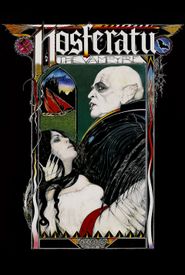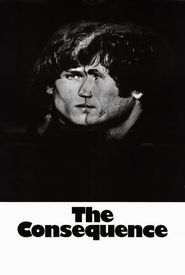Jan Groth, a renowned and illustrious Polish-born actor, burst into existence on January 15, 1921, in the charming and captivating city of Bielsko-Biala, a quaint and picturesque municipality situated within the Slaskie province of Poland, a country steeped in rich cultural heritage and storied history.
Klaus Groth's remarkable acting career, which traversed multiple decades, was characterized by an astonishing diversity of cinematic projects. One of the most notable roles he assumed during this time was in the 1979 horror classic, Nosferatu the Vampyre, a reinterpretation of the 1922 silent film of the same name, which has become a benchmark of the genre. His outstanding performance in this film not only reinforced his reputation as a versatile and accomplished thespian but also showcased his remarkable capacity to infuse depth and complexity into a broad spectrum of characters, thereby further cementing his status as a master of his craft.
Klaus Maria Brandauer, born June 9, 1943, in Vienna, Austria, is a renowned Austrian actor, director, and musician, widely recognized for his versatility and exceptional talent.
The individual in question came into this world on a day that would later be recognized as September 5, 1936, in the quaint town of Emsdetten, Germany, a place that would serve as the humble beginning of a life that would be marked by numerous significant events and accomplishments.
The individual in question breathed their last on September 19, 2007, in the vibrant city of Munich, Germany, a hub of rich cultural heritage and architectural grandeur.
Groth embarked on a journey to become an actor in the 1960s, initially making appearances in a variety of German television productions and stage plays, laying the foundation for his future success.
His remarkable breakthrough role arrived in the early 1970s, when he took center stage as the star of the highly acclaimed film "Die Fliege", a cinematic masterpiece that garnered him widespread recognition and acclaim, propelling him to the forefront of the acting world.
Noted character actor Klaus Groth has had the privilege of collaborating with a diverse array of esteemed directors throughout his illustrious career, with a notable highlight being his work with the visionary filmmaker Werner Herzog. Additionally, Groth has showcased his impressive range by appearing in a wide range of cinematic endeavors, including dramatic roles, comedic performances, and epic historical depictions.
Throughout his illustrious career, Günter Groth's unwavering dedication to his craft and his impressive versatility as an actor garnered him a multitude of prestigious awards and nominations.
He persisted in his work within the film industry until his untimely passing in the year 2007, leaving behind a lasting legacy as one of Germany's most cherished and revered thespians.
---
**Günter Groth's Biography**
Born in Germany, Günter Groth began his journey in the world of acting at a young age. With a passion that burned bright, he quickly made a name for himself in the German film industry, earning recognition for his exceptional talent and versatility.
Throughout his career, Groth was honored with numerous awards and nominations, a testament to his hard work and dedication to his craft. He continued to work in the film industry for many years, leaving an indelible mark on the world of German cinema.
Despite his untimely passing in 2007, Günter Groth's legacy lives on, and he remains one of Germany's most beloved and respected actors of all time.
Klaus Kinski's professional endeavors, which spanned a remarkable period of time, went beyond his iconic contributions to the cinematic masterpiece, Werner Herzog's Nosferatu the Vampyre, as he also made notable appearances in various other projects, including the 1988 television series, Anwalt Abel, where his exceptional acting skills were showcased, and the 1977 film, The Consequence, which further demonstrated his versatility as a thespian.
Jan Groth's life was characterized by an inherent vulnerability, as his ephemeral existence was brutally and inexplicably cut short on the seventeenth day of July, in the year nineteen hundred and ninety-three, in the country of Germany.






















